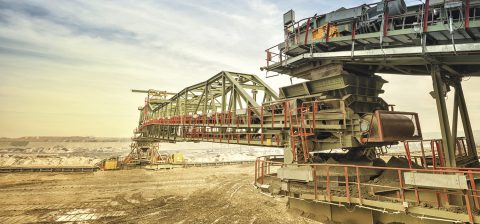Sunday Times Green
Carbon Tax
Are you ready for the carbon tax? Probably not. The new tax is a key part of South Africa’s plans to meet its obligations under the Paris Agreement on Climate Change, signed in 2016, but it was actually in the works for a decade before that. Trouble is, we’re notoriously bad at understanding the implications of new legislation until it’s almost too late.
We caught up with senior associate at Cliffe Dekker Hofmeyr’s Tax & Exchange Control Practice, Candice Gibson, to find out more.
Who will be affected by the carbon tax? Is it just big businesses and major polluters?
Candice Gibson: Taxpayers who conduct activities resulting in greenhouse gas (GHG) emissions above a certain threshold as provided for in Schedule 2 of the Carbon Tax Bill will be liable for the payment of carbon tax.

How does that compare to other carbon tax regimes around the world, and what
is standard practice?
CG: Without having studied the tax regimes in other countries with respect to tax on carbon, a few similarities and differences have been noted, among others, between British Columbia which introduced carbon tax in 2007, and Mexico which introduced carbon tax in 2014.
It appears that the South African tax regime is far more complex than that of other countries, which makes it difficult to be able to predict the likely impact once implemented.
How do you expect the tax to evolve over the next few years? There were plans to introduce a staged increase in price and scope – is that still the case?
CG: The proposal is for carbon tax to be implemented in a two-stage approach, with the first stage expected to last between four and five years following implementation. During the first phase, we are expected to see the rollout of numerous tax incentives and revenue recycling measures, allowing for the implementation without a resulting knock-on effect on the price of electricity and other related costs.
The aim during the first phase is for carbon tax to be revenue-neutral and where any revenue is generated during the first phase, that such revenue be recycled to fund measures to help the transition to a lower-carbon economy.
The second phase will involve South Africa developing a mitigation system where we are expected to see the implementation of:
- Regulatory instruments to be included in future climate-change legislation;
- Regulatory instruments based on existing regulations;
- The Department of Environmental Affairs (DEA) monitoring and evaluation; and The DEA inventory.
The proposed rate of carbon tax upon implementation is R120 per ton of carbon dioxide, equivalent to the GHG emissions of a taxpayer, with an annual increase of the consumer price inflation plus 2%. Thereafter the rate of interest is required to be made in line with inflation as determined by Statistics South Africa.
How will businesses and individuals ensure they are compliant with the carbon tax? Will taxes likely be applied at source for consumers, and are reporting mechanisms in place for businesses?
CG: Where a taxpayer conducts activities resulting in GHG emissions above a certain threshold, the taxpayer will be required to pay tax every single tax period. Since carbon tax is to be administered as if it were an environmental levy, this requires that environmental levy accounts and payments be submitted biannually. This would mean that the tax period would commence on 1 January and end on 30 June, in addition to the tax period commencing on 1 July and ending on 31 December.
The administration of Carbon Tax will largely lie with the South African Revenue Service working together with the DEA and the Department of Energy. The system will largely constitute a self-assessment process whereby the taxpayer is responsible for measuring their own emissions and calculating their own tax liability.
What do you think the immediate effect will be from 1 January 2019?
CG: Due to the allowances and offsets provided in the Carbon Tax Bill, the impact during the first phase will be mitigated to some extent, however in practice thereafter, the implementation of carbon tax will be costly for emission-intensive sectors.
Following the concerns raised during the first tranche of public hearings, as well as the current economy of South Africa, it does not appear that the implementation of carbon tax in South Africa without any additional amendments, will take place by January 2019. However, South Africa has committed itself in terms of the Paris Agreement to meet Nationally Determined Contributions by certain time periods and therefore is required to act to meet these commitments.






 Sign-up and receive the Business Media MAGS newsletter OR SA Mining newsletter straight to your inbox.
Sign-up and receive the Business Media MAGS newsletter OR SA Mining newsletter straight to your inbox.